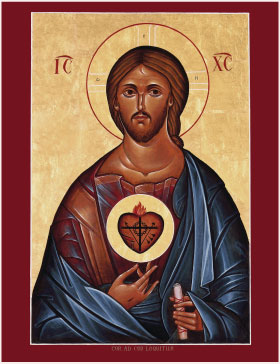Netti-Netti
Well-Known Member
- Messages
- 2,571
- Reaction score
- 0
- Points
- 0
This being the Comparative Studies thread for the Genesis story, I thought the Bahai view is worth mentioning. It strikes me as an integration of Christian and Buddhist ideas: identification with the material/phenomenal world of forms tends to lead to bondage. In the Bahai view, sin = attachment:
Christ is seen as the redeemer and a source of the spiritual knowledge that frees us from the bondage of sin by giving us our spiritual heart back. The Fall described in Genesis sets the stage for this action. The story illustrates wanting to live on our own terms, which invariably involves identification with the material/phenomenal world of forms that we use to structure our experience accordance with our own shortsighted whims.
The idea of Christ and the spiritual heart is recognized:

For the spirit and the soul of Adam, when they were attached to the human world, passed from the world of freedom into the world of bondage, and His descendants continued in bondage. This attachment of the soul and spirit to the human world, which is sin, was inherited by the descendants of Adam, and is the serpent which is always in the midst of, and at enmity with, the spirits and the descendants of Adam.
(T)he tree is the human world, and the serpent is that attachment to this world which constitutes sin, and which has infected the descendants of Adam....(A)ttachment to the earthly world, in relation to attachment to the spiritual world, is considered sin.... physical life, in comparison with eternal life in the Kingdom, is considered as death. So Christ called the physical life death, and said: "Let the dead bury their dead."
Bahá'í Reference Library - Some Answered Questions, Pages 122-126(T)he tree is the human world, and the serpent is that attachment to this world which constitutes sin, and which has infected the descendants of Adam....(A)ttachment to the earthly world, in relation to attachment to the spiritual world, is considered sin.... physical life, in comparison with eternal life in the Kingdom, is considered as death. So Christ called the physical life death, and said: "Let the dead bury their dead."
Christ is seen as the redeemer and a source of the spiritual knowledge that frees us from the bondage of sin by giving us our spiritual heart back. The Fall described in Genesis sets the stage for this action. The story illustrates wanting to live on our own terms, which invariably involves identification with the material/phenomenal world of forms that we use to structure our experience accordance with our own shortsighted whims.
The idea of Christ and the spiritual heart is recognized:

